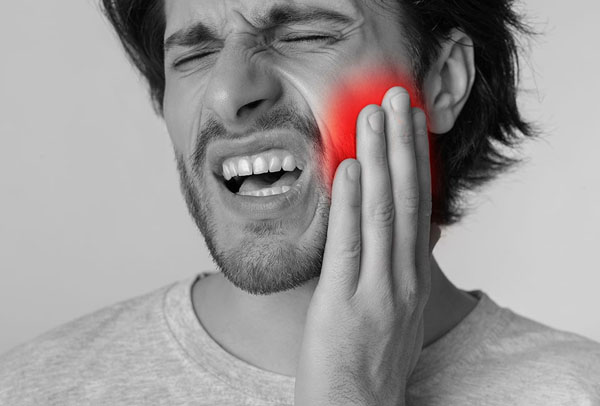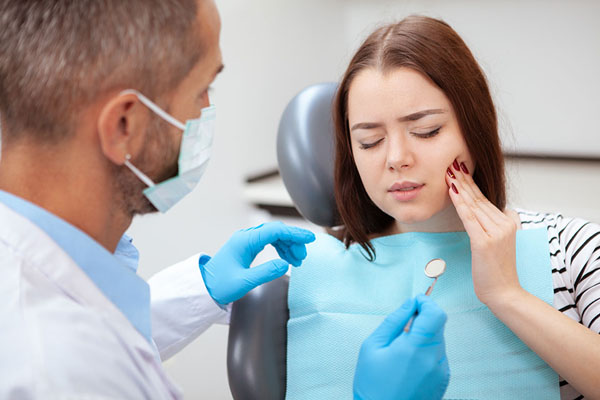Degenerative Joint Disease
Break Free From Jaw Pain
Is your jaw pain disrupting daily life? You’re not alone. With innovative treatments for TMJ degenerative joint disease, relief is within reach.
If you’re dealing with TMJ problems, contact our dentist in Jupiter, FL, today at (561) 744-0677 to schedule your consultation. We’ll evaluate your health and develop a treatment plan to relieve pain and get you on the track to better days.
What Is Degenerative Joint Disease?
Degenerative joint disease, also known as osteoarthritis, occurs when the protective cartilage in a joint begins to wear down. It can happen due to normal wear and tear, aging, or an injury.
In the case of your temporomandibular joint, degenerative joint disease can cause the cartilage that cushions the joint to break down, leading to bone-on-bone contact and inflammation in affected joints. This can result in pain, stiffness, and limited mobility in the jaw.

Causes of TMJ Degenerative Joint Disease
Several factors can contribute to the development of degenerative joint disease in TMJ, including:
- Aging: Natural wear over time can erode the cartilage in the TMJ, leading to osteoarthritis.
- Joint Injury: Trauma to the jaw, such as fractures or dislocations, may contribute to cartilage breakdown.
- Repetitive Motion: Habits like teeth grinding (bruxism) or excessive gum chewing can increase the risk.
- Genetics: Some people have a higher predisposition to joint issues due to inherited factors.
Osteoarthritis Symptoms
Symptoms of osteoarthritis in the TMJ vary from person to person. Some common symptoms include:
- Jaw pain or discomfort, especially during movement
- Stiffness and difficulty opening or closing the mouth
- Clicking, popping, or grinding sensations in the joint
- Headaches, earaches, and facial pain
If you’re suffering from any of these symptoms, call our Jupiter dental office at (561) 744-0677 to schedule an appointment.
Treatment Options for TMJ Degenerative Joint Disease
If you’re dealing with TMJ pain due to degenerative joint disease, you may try the following treatments:
- Medications: Over-the-counter NSAIDs like ibuprofen help manage inflammation, while prescription muscle relaxants or corticosteroids can be used for more intense pain.
- Physical Therapy: Stretching and strengthening exercises improve mobility and relieve stiffness. Manual therapy from a physical therapist can also help realign the jaw.
- Splints or Oral Appliances: These devices reduce pressure on the TMJ, especially for patients with bruxism.
- Surgery: In severe cases where conservative treatments fail, surgical options like arthroscopy, arthrocentesis, or joint replacement may be necessary.

Frequently Asked Questions
While degenerative joint disease cannot be entirely prevented, there are steps you can take to reduce your risk of developing the condition. Maintaining a healthy weight, practicing good posture, avoiding excessive jaw movements, and wearing a mouth guard during high-impact activities can help protect your TMJ and reduce your risk of degenerative joint disease.
Yes, degenerative joint disease in the TMJ is a relatively common condition, especially in older adults. It’s estimated that around 10 million people in the United States are affected by TMJ disorders, including degenerative joint disease.
Find Relief for Symptoms
If you’re experiencing jaw pain, stiffness, or limited mobility, see a doctor or dentist for an evaluation. Degenerative joint disease can be a chronic and debilitating condition, but with proper treatment and management, you can improve your quality of life and reduce your symptoms.
Contact our dentist today to schedule your consultation for TMJ in Jupiter. Call us at (561) 744-0677. We proudly serve new and returning patients in Jupiter and the surrounding areas, including Hobe Sound, Limestone Creek, and Tequesta, FL.
